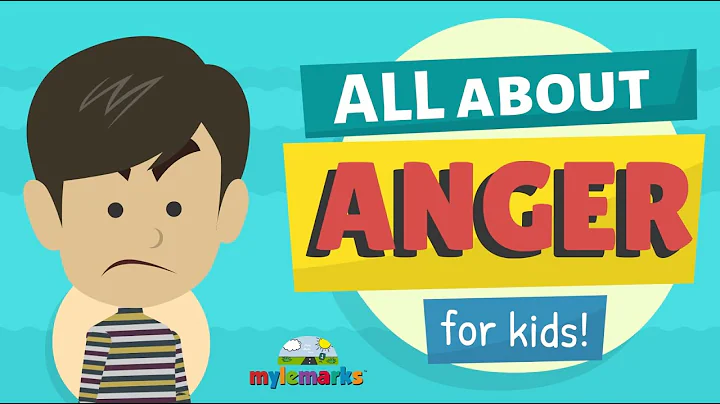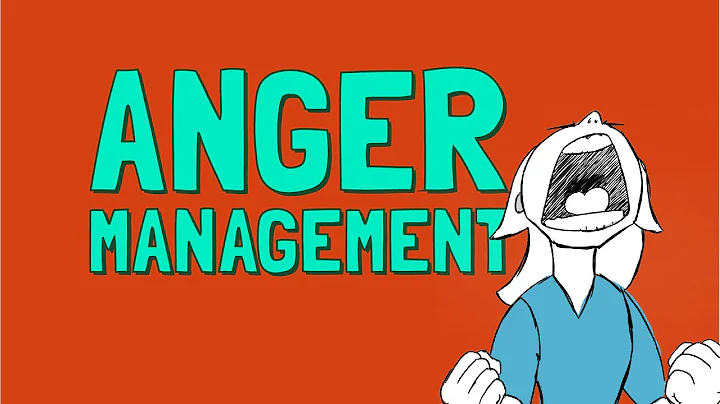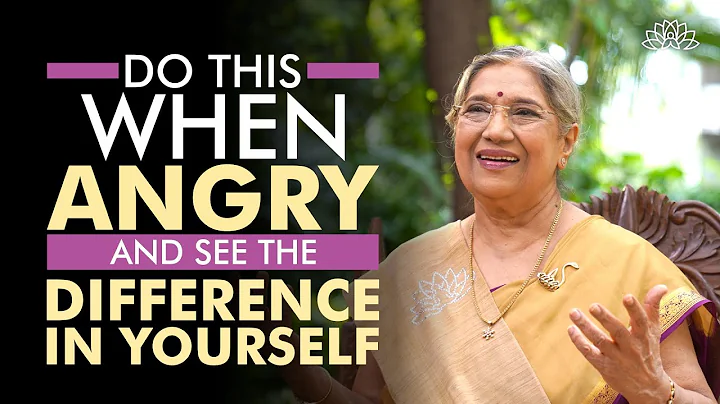
Many times, I am obviously very sad/angry, but the other person does not even know that I am angry.
How should I tell the other party that I am angry at this time?
Psychology believes that emotional management is divided into three steps of identification, expression and management, each of which is indispensable.
However, in the family education of many of us since childhood, there are often two extremes. Those who emphasize "fighting violence with violence" only focus on the "expression" of anger , and those who emphasize "step back and the sky will be brighter" directly skip the first two. The next step requires to "manage" .
Anger is one of the most common human emotions, and it’s perfectly normal. The presence of anger is an internal alarm that tells us something is not right, such as that your interpersonal boundaries have been violated.
When you repress anger, it is covered up, denied and internalized, which may lead to some unhealthy emotional reactions, allowing you to internal self-attack, such as low self-esteem, shame, isolation, guilt, etc.
So learning to be angry well and expressing anger reasonably is not only a way to love yourself, but also the beginning of self-healing.
01
How to be angry is more decent
There are many ways to express anger, but it can be roughly classified into three categories.
When some people are angry, they will smash things, slam the door, block the other person and cut off the relationship, and even go so far as to hold grudges and seek revenge in the future.
These behaviors are essentially internalizing one's expression of angry emotions, rather than passive anger.
Some people are aggressive and angry , which is the so-called "tit for tat", expressing anger in a way that hurts others physically, emotionally, and psychologically.
Common such behaviors include yelling, violent beatings, and harsh words.
There is also a kind of anger that is "not angry but self-defeating". In psychology, it is called assertive anger (Assertive anger).
Anger is expressed directly to the person concerned in a non-threatening way. This can be a look, a cough, or a simple word. This is the so-called angry "constructive communication" method.
Obviously, both passive and aggressive anger can cause harm to others or leave a bad impression.
Moreover, research has found that "explosive anger" (venting it to others) and "internal anger suppression" (controlling anger inside), both of which will have adverse effects on health: positive emotional experience is reduced, social functions are impaired, There is even an increased risk of cardiovascular disease.
So to be decent, one must still be confident and angry .

02
Why is it so difficult to say "I'm angry"?
According to psychologist statistics, there are at least the following 8 reasons why people are afraid of getting angry:
1) Thinking that what they want to say "goes against the views of most people";
2) Fear of retaliation;
3) Feeling that they will lose, Or say you will look stupid in a conflict;
4) don’t want to hurt other people;
5) are afraid of how others will react because they have not recognized your point of view in the past;
6) feel you can’t do this without losing your courage
7) Feeling guilty after getting angry;
8) Just because you don’t know how to express yourself.
The root of these feelings may be:
Being numb to anger and unable to recognize and feel your own emotions.
Not getting angry is a manifestation of unconscious desire to control the situation. The mistaken belief is that if one is not angry, the situation can be controlled.
And there is a deep-rooted understanding that feels “unworthy” of being in a relationship. Even in an abusive relationship, you believe your anger is irrational.
Inner aggression caused by suppressed anger may make you feel that the other person's inappropriate criticism is justified. So your reaction is not anger, but self-criticism.
Fear of damaging relationships This is often seen in families or intimate relationships, where anger is not expressed because of fear of damaging the relationship with the other person.
"Even if I express my anger, it will be of no use and nothing will change." The common concept in psychology "learned helplessness" will naturally appear when managing anger.
But what is the price of suppression?
Repressed anger does not disappear on its own, but is transformed into two main emotions, one is self-blame (guilt) , and the other is anxiety in general.

03
Reasonable expression of anger is a kind of self-healing
If you want to learn "confident anger", the first step is to get used to narrating events and your own emotions starting with "I" .
For example: I can't accept such a comment/I feel very angry/I feel very bad/I'm not as bad as you said.
Speaking with "I" has the following benefits:
a. The focus is on talking about your own feelings, not the behavior of others;
b. Clarify the problem, avoid using words like "always" and "everyone", clarify the problem Specific content;
c. Express your own demands, such as wanting to be alone.
In real situations, it is not easy to say such things. You may worry that you appear ridiculous or "not powerful enough."
But behind these words is true self-esteem and confidence . Being assertive means expressing anger directly and in an appropriate tone without belittling others.
There is no shortcut. What we need to practice countless times is this kind of "determination without hostility".
We can also use other methods to help ourselves cultivate self-confidence:
A. Admit that you have anger
You can treat yourself as a somewhat emotional child.It's okay to feel these emotions - don't tell yourself "you need to calm down" or "just bear with it".
B. Cognitive restructuring
The question to be solved here is: Is the object of your anger accurate?
Experiences of anger are often associated with cognitive distortions, such as misunderstandings about the significance of the event or the ability to cope.
An angry person tends to "overgeneralize" the meaning of other people's actions and "narrow" his or her own actions to either/or (do/not do).

C. Give yourself a buffer period
Take a deep breath, then stop and imagine yourself looking back on this matter in the future, or imagine what he would suggest from the perspective of a friend.
D. First learn to pass off the good as good
In the anger expression practice, "whether it is good enough" is not important. Don't expect immediate success.
You can start by saying rough thoughts, and as we become more familiar with our own emotional responses, we can slowly find better ways to express them.
It is not easy to learn to make yourself angry. This is a basic self-esteem. You must practice more often!





















